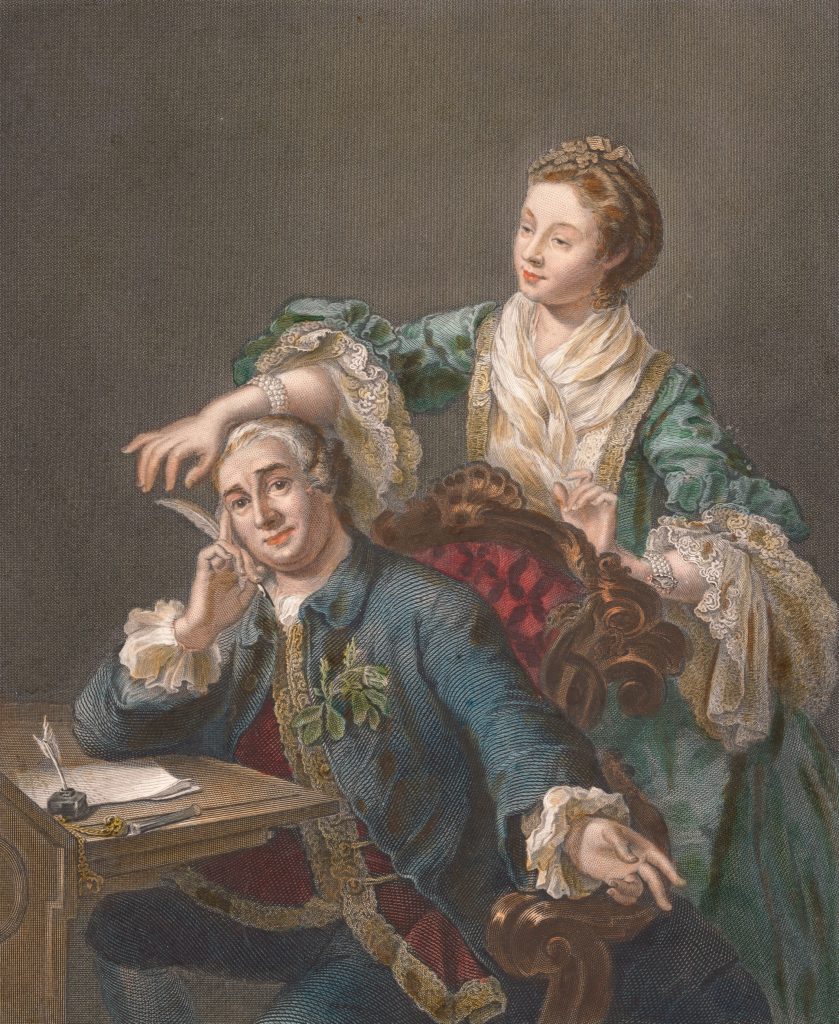What Biological Sex is OCD more Common in?
Medically Reviewed By – Juliet Gustafson, LMSW

The role of sex differences in OCD has been a topic of conversation for a long time. Does it matter if you are a male or female when it comes to OCD? Do symptoms change from one sex to the other? Finally, why does OCD’s behavior change based on sex? These are all questions that are frequently asked in the OCD community. We tried our best to answer these questions with a great deal of emphasis on research and detailed studies.
This post is all about What Biological Sex is OCD more Common in?

🎁 Special Offer: 🎁 When you use our affiliate link, you’ll receive an exclusive 20% discount on Online-Therapy.com services!
Don’t miss this opportunity to invest in yourself and unlock your full potential. Start your journey to mental wellness today!
Say yes to a brighter, happier future with Online-Therapy.com!
20% discount on Online-Therapy.com services
Are you ready to take control of your mental well-being and embark on a journey towards a happier, healthier you? Look no further than Online-Therapy.com!
Experience a transformation in your mental health with the following benefits:
- Convenient & Confidential: Online-Therapy.com provides a safe and private platform for therapy sessions. Say goodbye to the stress of in-person appointments.
- Comprehensive Resources: Access a treasure trove of therapeutic resources, including worksheets, journals, and interactive tools, all designed to help you grow and heal.
- Certified Professionals: Connect with experienced and licensed therapists who are dedicated to your progress and well-being.
- Tailored Approach: Online-Therapy.com offers personalized plans designed to suit your specific needs, ensuring you receive the support you deserve.
What Is OCD
The lifetime prevalence of obsessive-compulsive disorder (OCD) is 2-3% globally, making it one of the most common mental diseases. Despite the high frequency, studies suggest that it can take up to 17 years from the time when OCD symptoms first appear until a patient begins receiving effective treatment. Obsessions and compulsions are core features of OCD, acting as an infinite cycle starting by thoughts (obsession) followed by actions (compulsions).
What Is The Link Between Females and OCD?
As we stated above, personal trauma is one of the key causes of the onset of OCD. According to research and various types of surveys, Females are more likely to experience trauma than males. This could play a role in the relationship between females and OCD. Furthermore, this is backed up by facts as studies have proven that more females (1.5%) than males (1%) are diagnosed with OCD in their lifetime.
More on OCD? – Download your FREE OCD worksheets now!
Furthermore, the role of pregnancy may greatly influence the onset of OCD in women. Known as postpartum OCD, is a common theme of diagnosis for women after giving birth. According to a study conducted in 2013, about 1 – 3.5% of women suffer (or at least) experienced postpartum OCD.
Does OCD Favor Females Over Males ?
Overall studies and analysis of various types of data leads us to believe that women have a greater risk factor of developing OCD when compared to men. This is due to several different factors discussed earlier. Moreover, the nature of women may also play a role in the onset of OCD.
The menstrual cycle (period) has been studied greatly on how it may impact mental health disorders in general. According to The National Library of Medicine, hormonal fluctuations during the menstrual cycle does indeed impact OCD negatively. Specifically increasing the severity of Obsessive symptoms such as checking and reassurance OCD.
How Does OCD Impact Males And Females?
While this may seem like a straightforward question, its answer is quite complicated. Studies show that the age of onset differs immensely between males and females. Specifically speaking, men develop OCD at a much younger age than women.
While on the other hand, females tend to develop and experience OCD later on in life (adolescence). Furthermore, studies have shown that OCD symptoms and OCD subtypes are also affected by sex differences.
Related Article(s) – What Causes OCD To Get Worse?
For example, men suffer more from intrusive thoughts, specifically blasphemous sexual and religious ones. However, women have shown an increase in severity of anxiety, depression and checking symptoms. Moreover, Comorbid diseases also may vary due to sex differences. Males are more likely to experience social anxieties and phobias, while while females are more likely to experience Comorbid depression and a higher risk of suicide.
Do OCD Symptoms Change Based On sex?

Obsessions, compulsions and intrusive unwanted thoughts are core characteristics of OCD. In other words, these are the aspects of what makes OCD what it is. However, symptoms and subtypes may be considered flexible as they change from one person to the other depending on various different factors. In recent years studies have shown that biological sex may play a role in whether a person will develop certain subtypes of OCD and experience different types of Obsessive compulsive symptoms.
For example, contamination Obsessions are more frequently experienced in women while on the other hand, sexual obsessions are more common in men. Furthermore, contamination symptoms were found greatly in women compared to men.

🎁 Special Offer: 🎁 When you use our affiliate link, you’ll receive an exclusive 20% discount on Online-Therapy.com services!
Don’t miss this opportunity to invest in yourself and unlock your full potential. Start your journey to mental wellness today!
Say yes to a brighter, happier future with Online-Therapy.com!
20% discount on Online-Therapy.com services
Are you ready to take control of your mental well-being and embark on a journey towards a happier, healthier you? Look no further than Online-Therapy.com!
Experience a transformation in your mental health with the following benefits:
- Convenient & Confidential: Online-Therapy.com provides a safe and private platform for therapy sessions. Say goodbye to the stress of in-person appointments.
- Comprehensive Resources: Access a treasure trove of therapeutic resources, including worksheets, journals, and interactive tools, all designed to help you grow and heal.
- Certified Professionals: Connect with experienced and licensed therapists who are dedicated to your progress and well-being.
- Tailored Approach: Online-Therapy.com offers personalized plans designed to suit your specific needs, ensuring you receive the support you deserve.
Conclusion
Biological sex differences in OCD have never been so obvious. Although we don’t know the exact reason why OCD changes to a degree based on sex, we do however know which sex suffers the most from a specific obsession and or compulsion. Furthermore, it is imperative to understand that the above biological sex differences mentioned may fluctuate from one person to another. In other words, nothing is 100% written in stone.
This post was all about What Biological Sex is OCD more Common in?
References
- Bogetto, F., Venturello, S., Albert, U., Maina, G., & Ravizza, L. (2020, September 30). Gender-related clinical differences in obsessive-compulsive disorder: European psychiatry. Cambridge Core. Retrieved January 6, 2023, from https://www.cambridge.org/core/journals/european-psychiatry/article/abs/genderrelated-clinical-differences-in-obsessivecompulsive-disorder/0D0A5D1DD81458860E76EEA71D1EFC07
- Gender differences in obsessive-compulsive disorder: A literature review. (n.d.). Retrieved January 6, 2023, from https://www.researchgate.net/publication/51905807_Gender_differences_in_obsessive-compulsive_disorder_A_literature_review
- Khess, C. R., Akhtar, S., Jagawat, T., Das, S., & Srivastava, A. (1996, July). Gender and psychopathology in obsessive compulsive disorder. Indian journal of psychiatry. Retrieved January 6, 2023, from https://www.ncbi.nlm.nih.gov/pmc/articles/PMC2970836/
- Mulligan, E. M., Hajcak, G., Klawohn, J., Nelson, B., & Meyer, A. (2019, May). Effects of menstrual cycle phase on associations between the error-related negativity and checking symptoms in women. Psychoneuroendocrinology. Retrieved January 6, 2023, from https://www.ncbi.nlm.nih.gov/pmc/articles/PMC6450738/
- NB;, M. B. M. M. D. M. S. (n.d.). Epidemiological and clinical gender differences in OCD. Current psychiatry reports. Retrieved January 6, 2023, from https://pubmed.ncbi.nlm.nih.gov/31016410/

